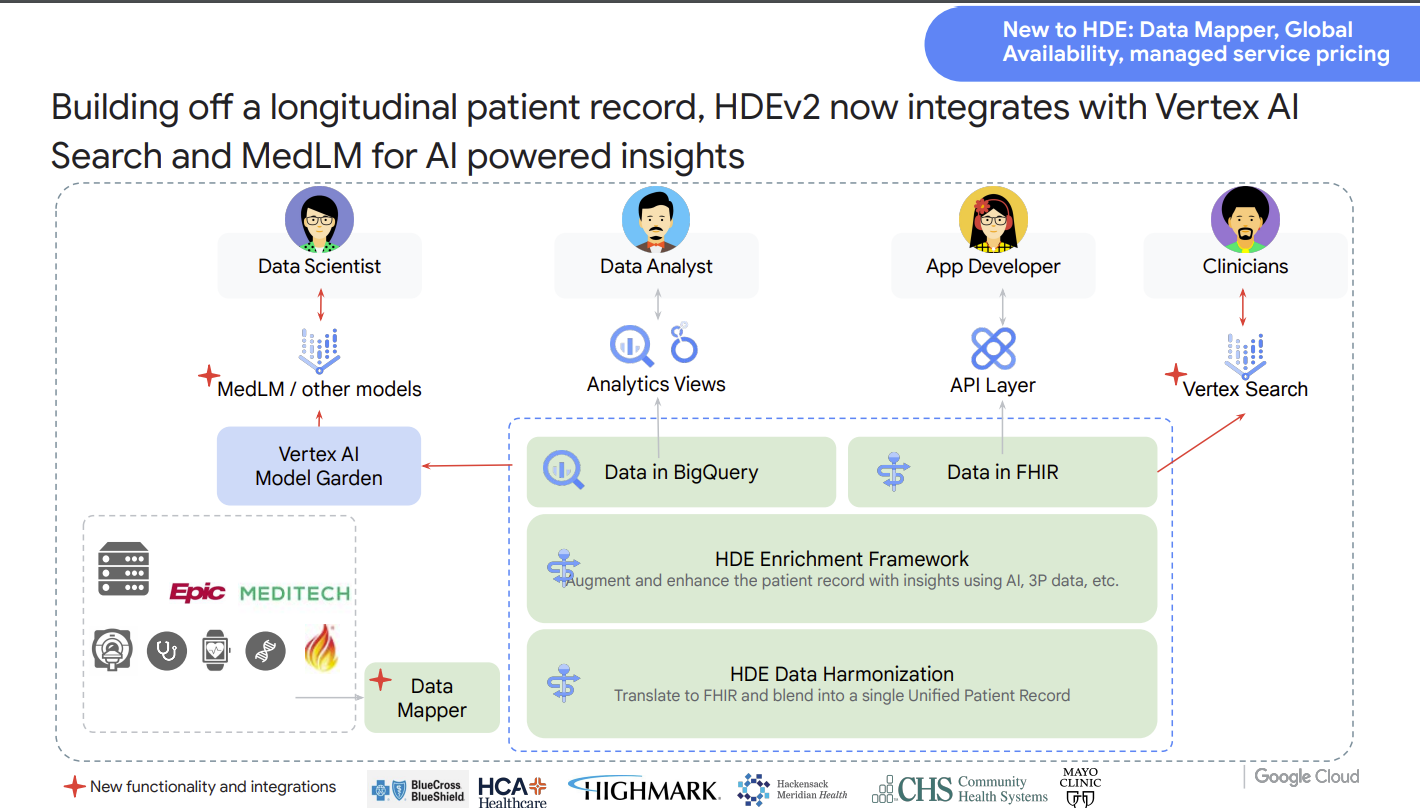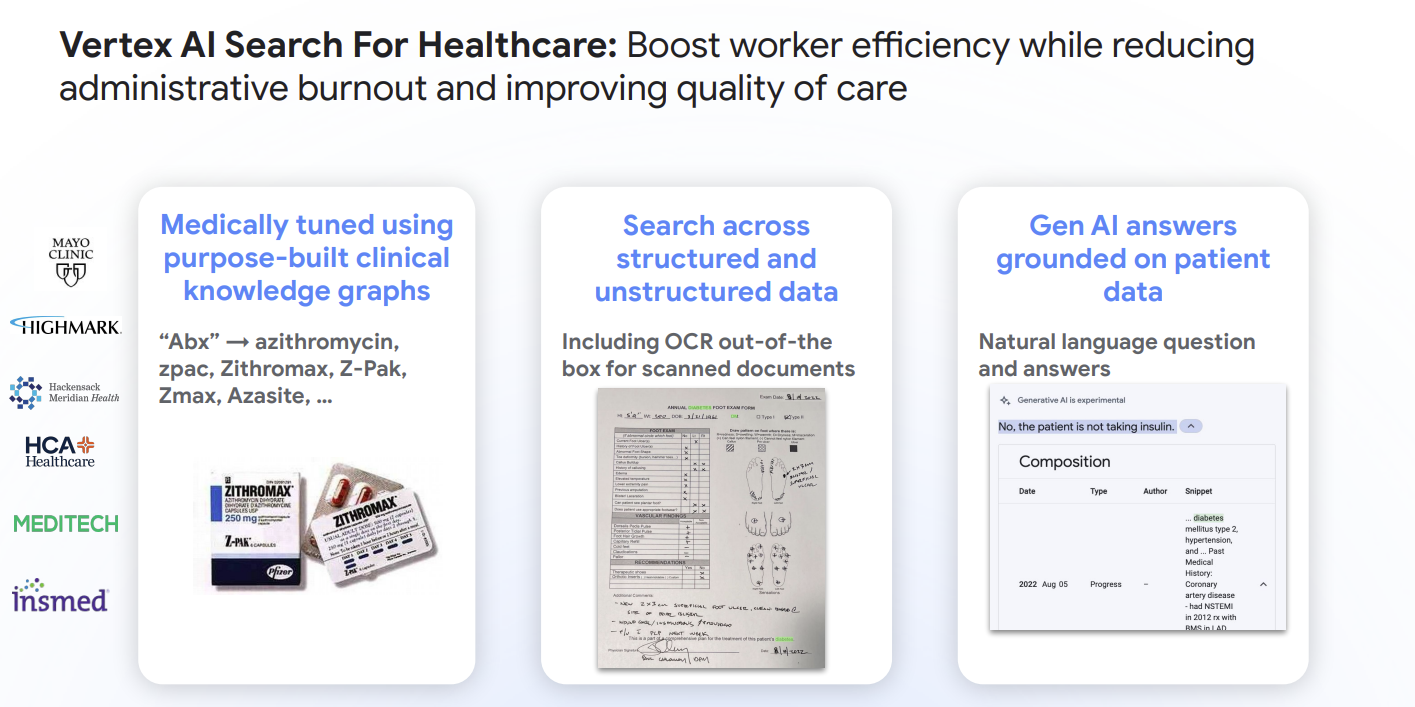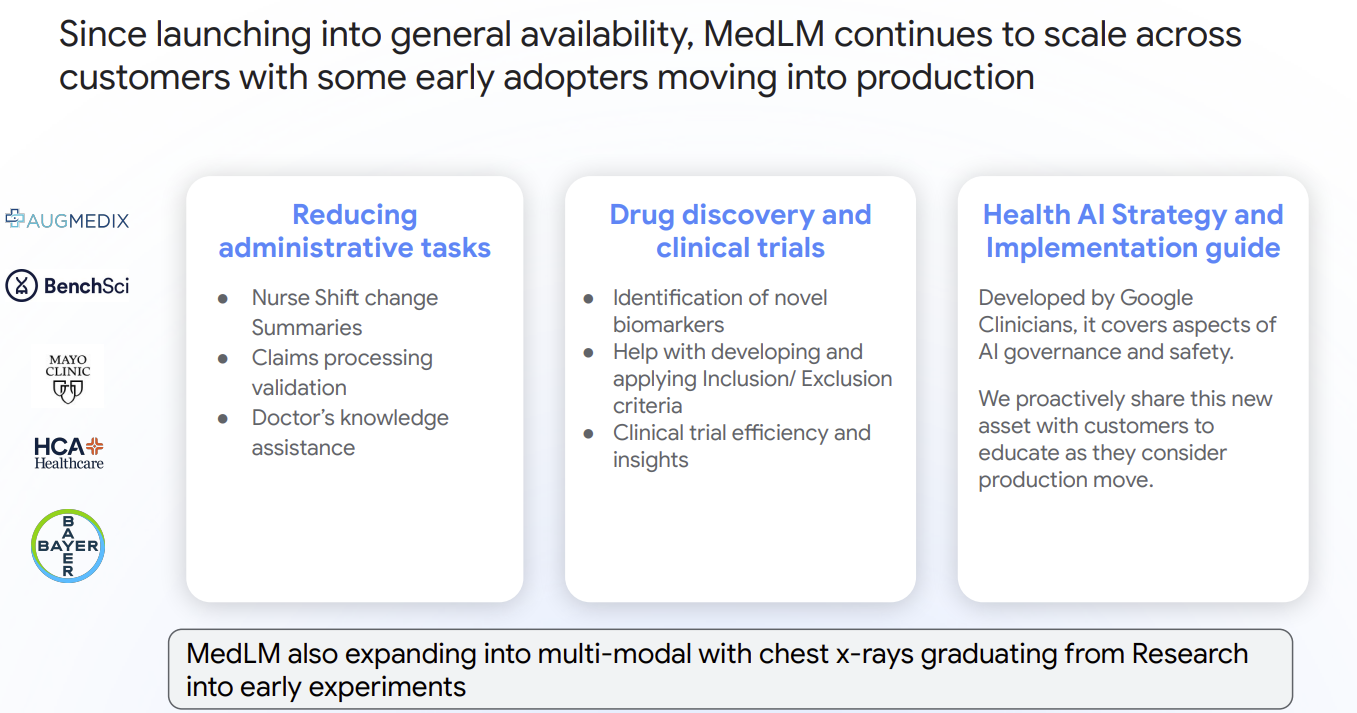Google Cloud's healthcare push accelerates with Vertex AI, MedLM, Healthcare Data Engine
Google Cloud said its Vertex AI Search for Healthcare with integration with MedLM and Healthcare Data Engine v2 is generally available.
The announcement, made at HIMSS 2024, highlights how Google Cloud is pushing into the healthcare industry, which wrestles with data silos and multiple electronic medical record systems. Google Cloud's plan is to combine Healthcare Data Engine, MedLM and foundational models to drive efficiencies.
Aashima Gupta, Global Director of Healthcare Strategy & Solutions at Google Cloud, said generative AI use cases started out with skepticism in healthcare, but now is seen as a key component to innovation. The industry is "assessing where the most data intensive manual work is for non-value tasks such as note taking, summarization, finding information and synthesizing information," she said.
"We are seeing possibilities for genAI across the value chain," said Gupta, who noted that employees, nurses and clinicians are seeing workflow improvements. She added that the industry is looking for low-hanging fruit for uses cases and expanding from there. Healthcare providers are also investing in the data foundation needed to implement genAI.
More healthcare:
- Themes from the healthcare data, AI, disruption front lines
- 8 takeaways from Constellation Research's Healthcare Transformation Summit
- Medtronic aims to leverage medical device data for AI-enabled care
- Oracle's plan for Cerner: Cloud shift, generative code rewrite
- CVS Health’s Transformation Rides on Data, AI and Customer Experiences
Google Cloud's play in healthcare is to lean into its search capabilities and leverage genAI to synthesize information across multiple systems. "GenAI has moved much faster than any project we have seen, and we are moving from pilots in some cases into production," said Gupta.

Here's a breakdown of the announcements:
Vertex AI Search for Healthcare. Lisa O'Malley, Senior Director Product Management for Google Cloud Industry Products, said the company is looking at streamlining processes like prior authorization claims, submissions and reviews easier between providers and payers. In life sciences, O'Malley said Google Cloud is looking to reduce the administrative burden with clinical trials.
"This is really about driving insights and information to clinicians," said O'Malley.

Healthcare Data Engine v2. O'Malley said that MedLM and Google Cloud's Healthcare Data Engine v2 is moving beyond proof-of-concept to production in healthcare organizations. "We are starting to see these assistants do more complex tasks like nurses creating a handover to the next shift," said O'Malley.

Richard Clarke, Chief Analytics Officer at Highmark Health, said generative AI is part of an effort to improve experiences. "We're doing everything we can to be more proactive, personalized and enabling patients and clinicians to focus on health," he said. "In order to do that we knew we need a better digital experience, interoperability and data and AI."
Clarke said the Google Cloud healthcare tools are building blocks to create better outcomes. For instance, Highmark is using Vertex AI and Healthcare Data Engine to connect the dots between Epic, an electronic medical record system, survey, records and systems of engagement to provide insights and proactive interventions.
"This next best action system is leveraging Vertex for more than 700 billion data points across our entire population to identify next best actions," said Clarke. "We see that growing substantially as we onboard new data sources."
In the second quarter, Highmark will use Google Cloud to create a learning healthcare system, which is a closed loop system that will collect information from Epic and other systems and make recommendations. "It will be rolled out by the end of the second quarter," said Clarke. "I think we're finally getting past is we're data rich and insight poor. It is a use case rich environment. The challenge has been scale."

